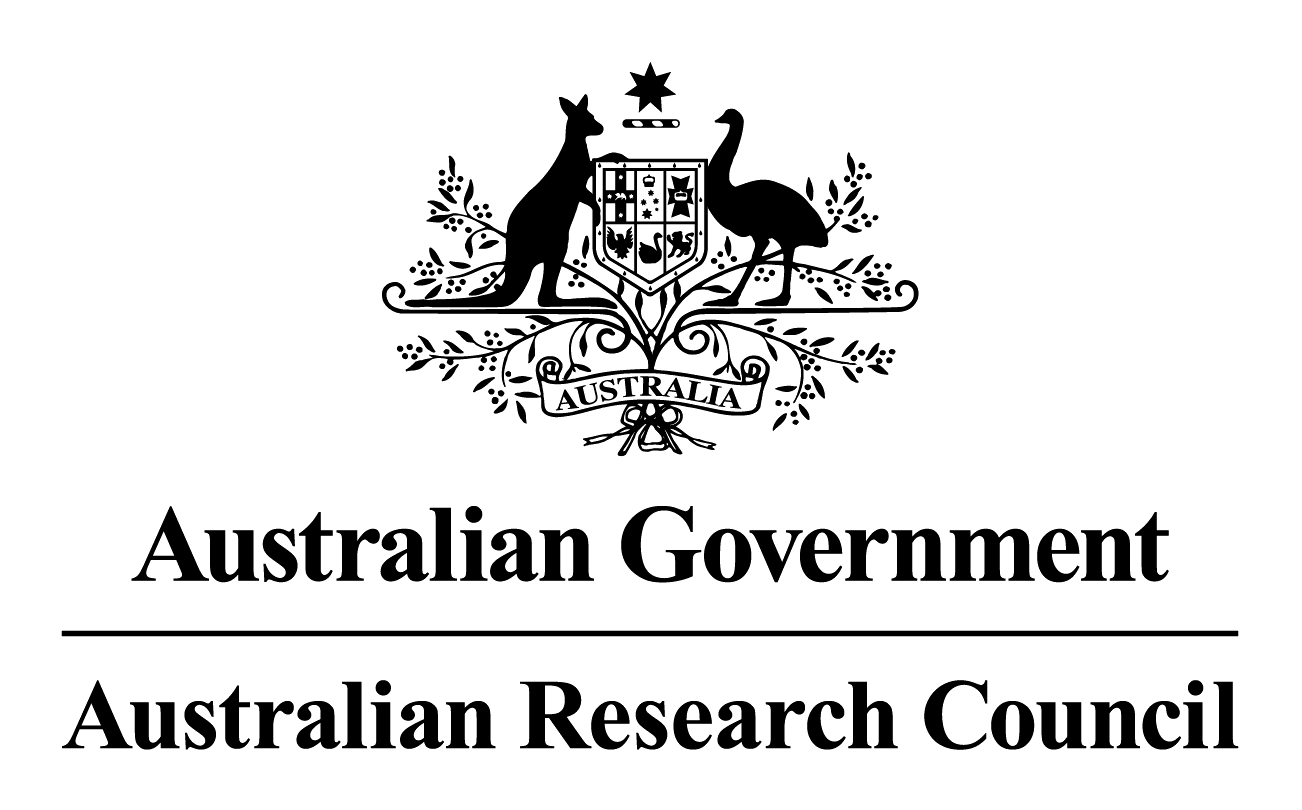
Aversion to option loss in a restless bandit task
Danielle Navarro, Peter Tran & Nicole Baz
11 June 2018, ALG meeting, Katoomba

Products don't stay on sale forever
Possible romantic partners move on
Houses go off the market
Images via pixabay
In real life, choice options have limited availability



Images via pixabay
Keeping options viable requires active maintenance
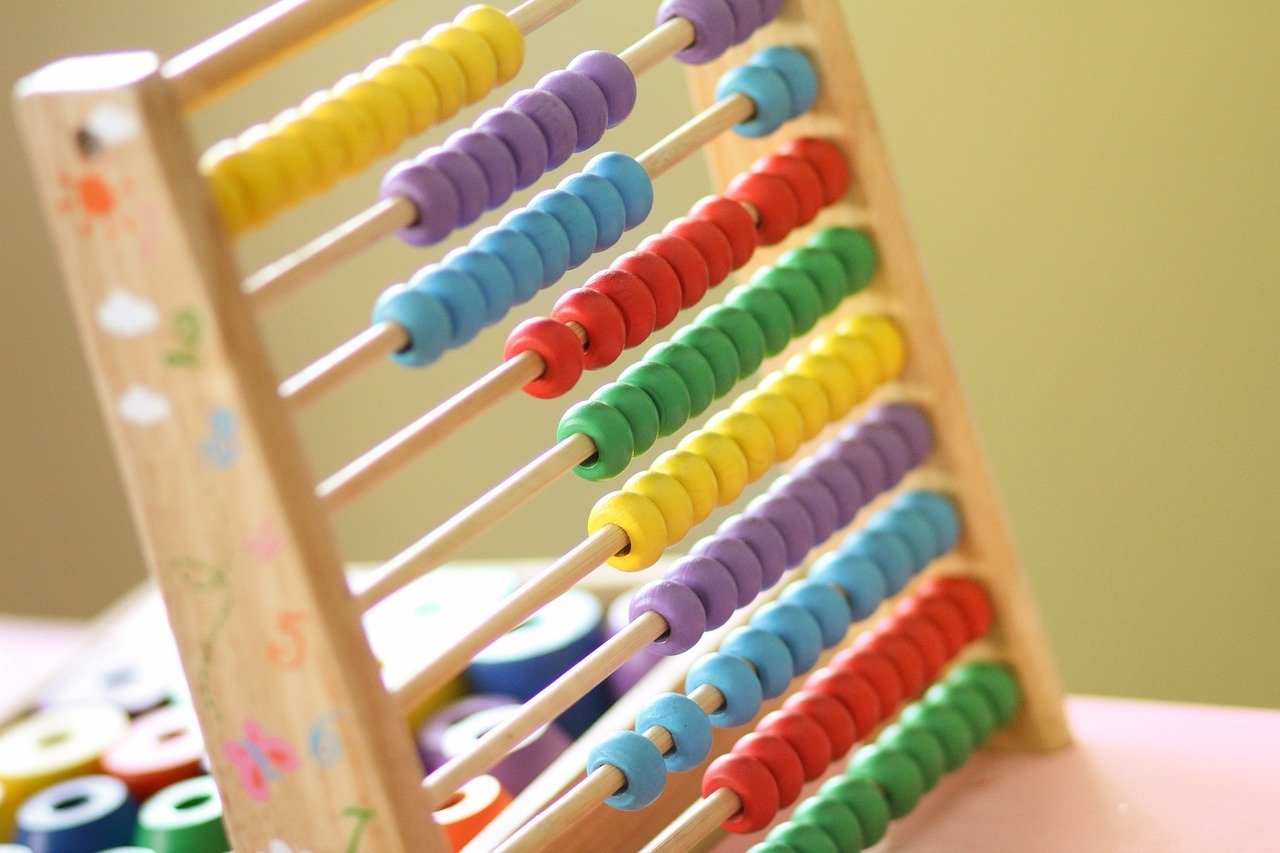
RSVP now to attend party later
Study now for a career later

Show up to the first date to get invited on a second

Images via unsplash
How many to pursue?
Pursuing too many options consumes time, effort and other scarce resources
The opportunity cost for maintaining poor options can be substantial
Yet... pursuing too few is risky... What if the world changes? What if your needs change?
Existing literature?
- Vanishing options tasks
- Shin & Ariely (2004)
- Ejova et al (2009)
- Neth et al (2014)

- Other related literature
- Endowment effect (Kahneman & Tversky 1979)
- RL models with prospect curves (e.g., Speekenbrink & Konstantinidis 2015)
"doors" problems
Instantiation within a bandit task
image source: flaticon




M1
M2
M3
M4
lose $5
win $2
lose $1
lose $1




win $2
lose $3
I've not used these machines recently, and someone else has taken them
I've concentrated recent bets on these machines
win $2
win $2
lose $5
RL approximation: options not pursued for N trials vanish
1
2
3
4
5
6
7
8
chosen
viable option not chosen
someone takes the machine



someone takes the machine

Experimental task
Method
- Task:
- Six armed bandit
- Horizon: 50 trials (x3)
- Feedback between games
- Other details:
- Experiments run on Amazon Mechanical Turk
- Expt 1: N = 400, Expt 2: N = 300, Pay: US$10/hr
- Instructions had short "test" to check understanding
-
Manipulations:
- Availability (const., threat)
- Change (static, slow, fast)
- Drift (none, biased)
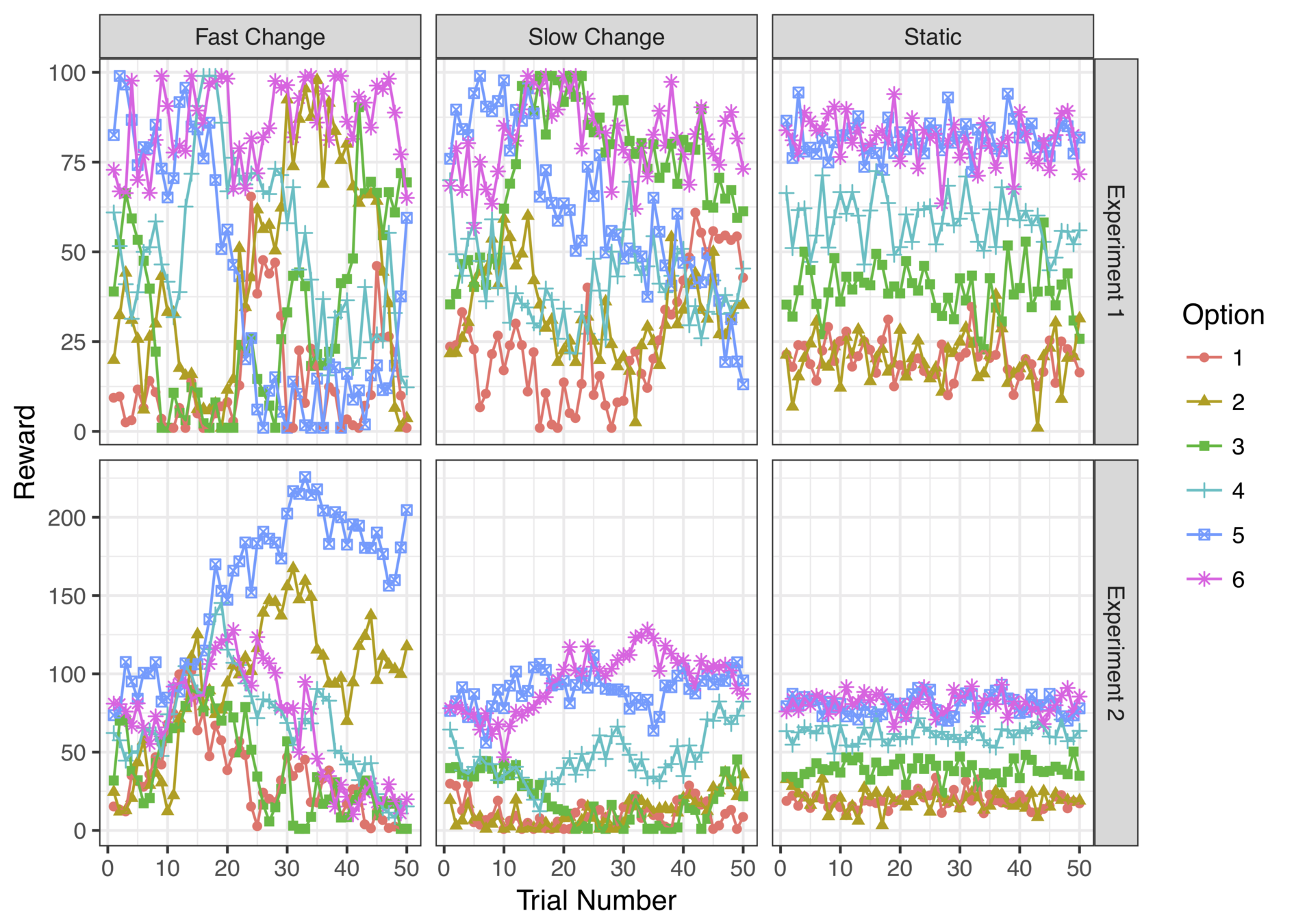
Dynamics?
Results
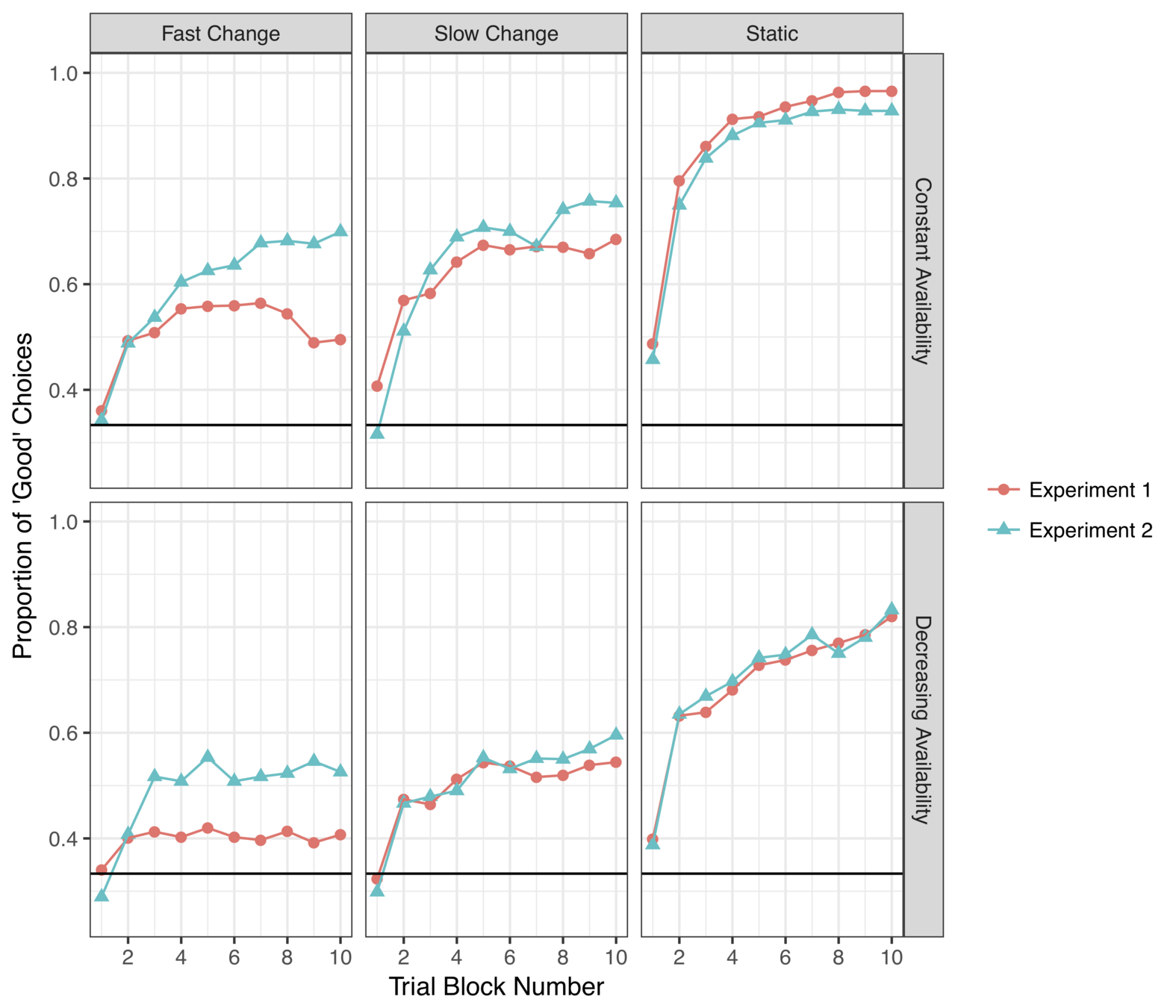
Learning curves
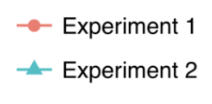
- Good = "top 2" option
- People learn quickly
- Fewer good choices when:
- option threat exists
- environment changes
- (Runaway winner effect in Exp 2 fast change)
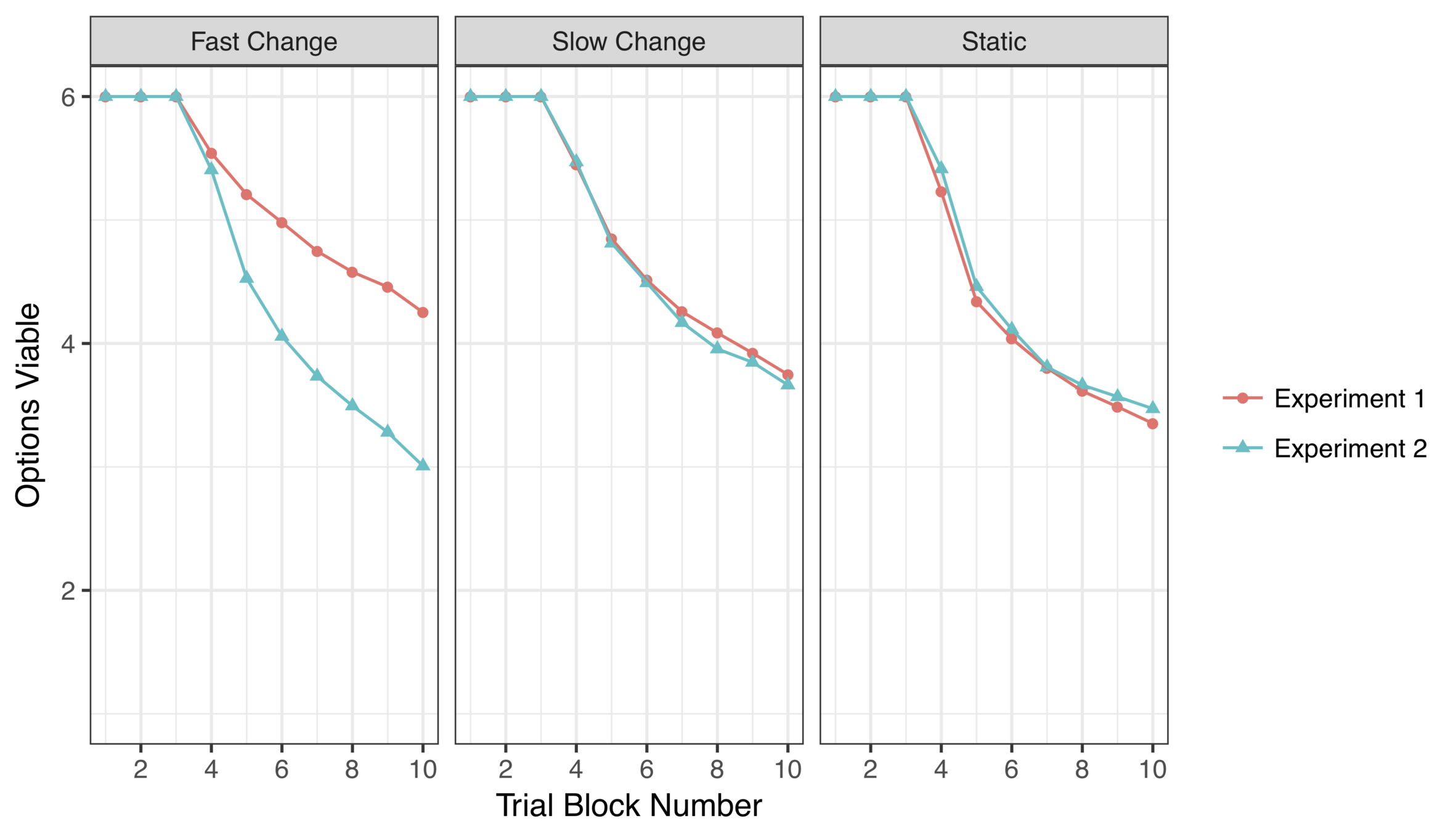
How many options do we keep?
~ 3-4 options retained
(consistent with Ejova et al 2009)
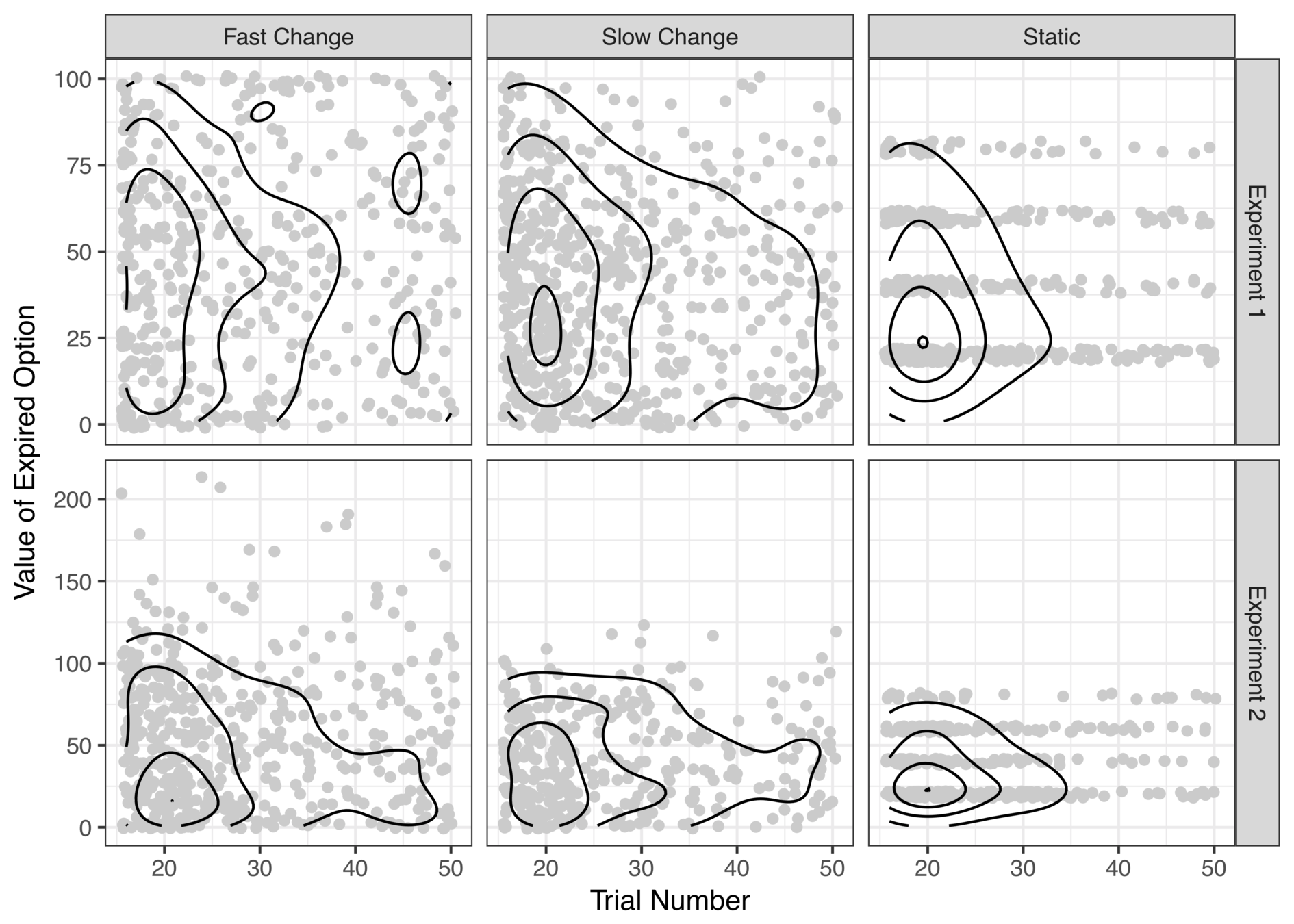
When do we let options go?
(an unapologetically exploratory analysis!)

1. Poorer discrimination in volatile environments?
early expired options almost always low value
early expired options sometimes high value

2. Letting go near the deadline?
Looks like people are "clinging" to a few suboptimal options only to let them expire right before the deadline?
Interim summary
- People mostly make good choices, but it is hard in extremely volatile environments (not surprisingly)
- People do let options expire but are perhaps reluctant: agrees with Ejova et al (2009), Neth et al (2014), possibly also with Shin & Ariely (2004)
- There appears to be systematicity to how and when we allow options to expire
Open questions
- Is the expiry any different to what we'd expect from a standard RL model (e.g. Kalman filter)
- If there are differences, what pattern do they take?
- Do the differences in responding across volatility levels reflect a strategy change, or the same approach expressed differently because the environment is different?
Computational Modelling
Kalman filter
Expected reward for option \(j\) on this trial
Uncertainty about reward for option \(j\) on this trial
Expected reward for option \(j\) on last trial
Uncertainty about reward for option \(j\) on last trial
Uncertainty drives Kalman gain
Kalman gain influences beliefs about expected reward and uncertainty
Kalman filter
Predicted reward for choosing the option
Prediction error
(only update chosen option)
Amount of learning depends on the Kalman gain
Kalman filter
- Volatility \(\sigma_w\) and noise \(\sigma_n\) fixed at veridical values
- Initial values \(E_{j0}\) and \(S_{j0}\) reflect diffuse prior
- Model not yoked to participant: purely predictive
KF updates uncertainty
Gain depends on uncertainty
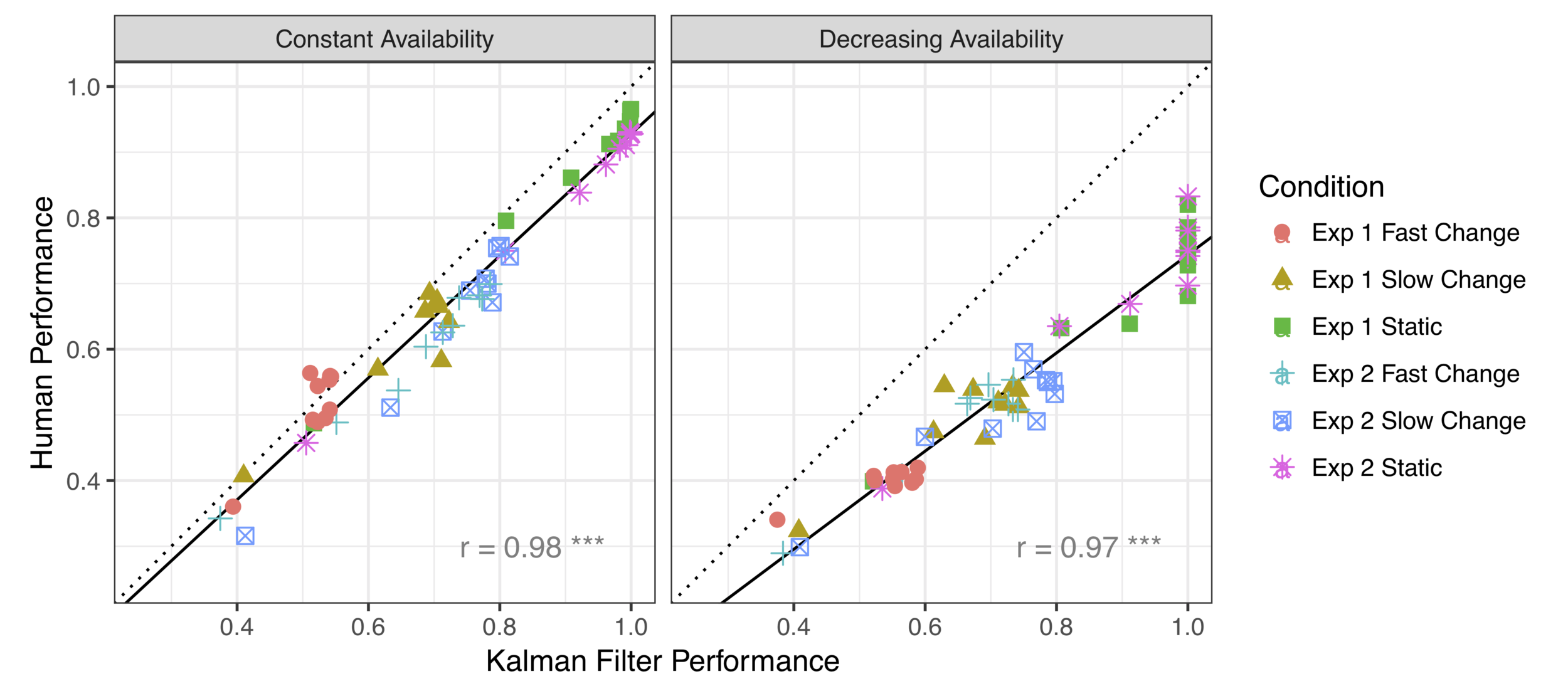
Choice probabilities
KF model provides an excellent account of choice behaviour when options do not expire
There is a systematic difference when option loss is a possibility
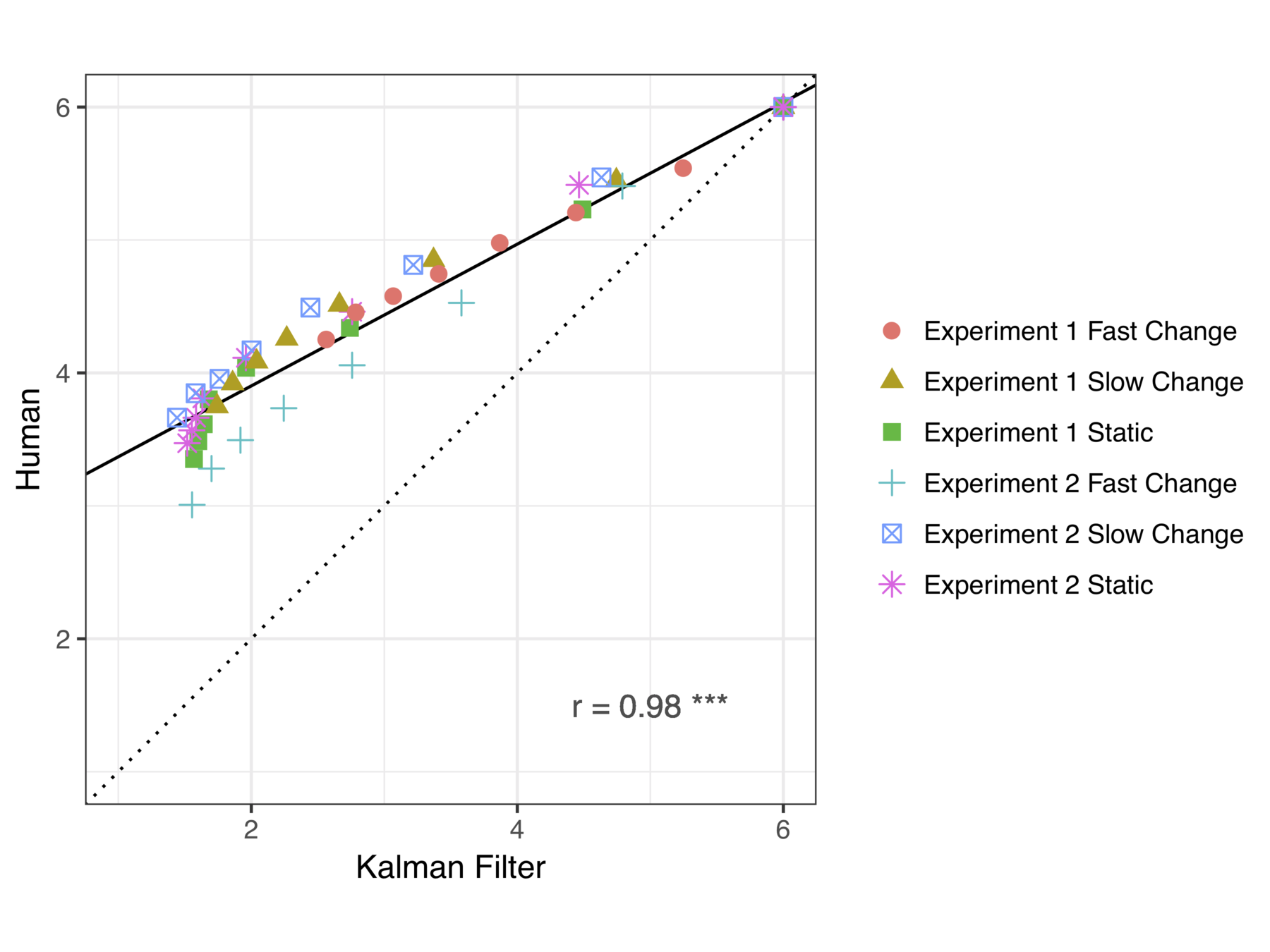
Options retained?
Human decision makers retain more options than the KF model
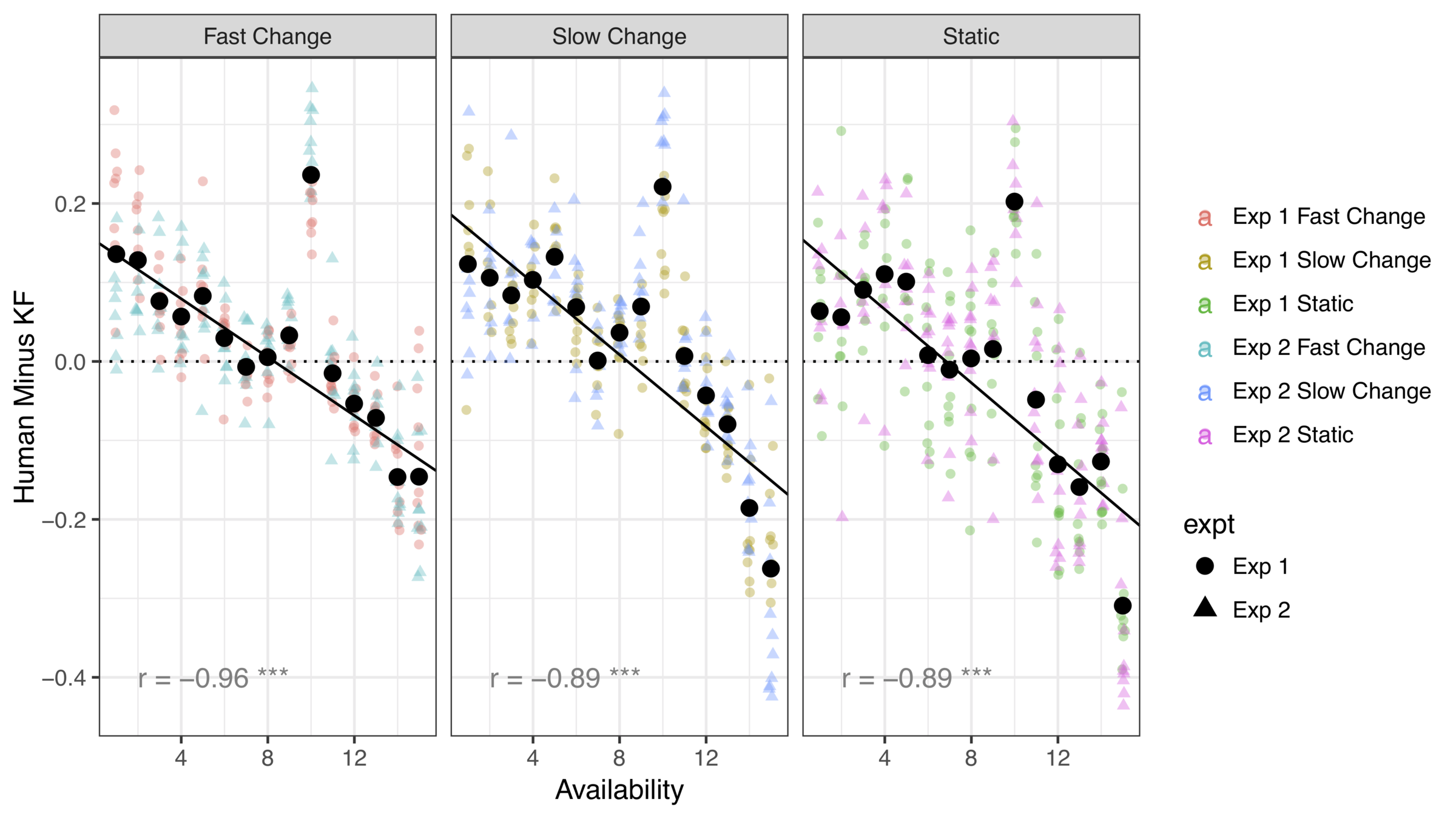
Quantifying loss aversion?
Conclusions?
- Replicated findings from "doors" tasks in a bandit task framework without explicit switching costs
- Extension to several dynamic environments
- Computational modelling to measure the shift in decision policy when option loss exists
- Attempted to quantify the loss aversion signal
Main findings
Follow up?
- Covariates? Does anxiety play a particular role here?
- Why the "gradual rising" pattern? Hazard in the task is abrupt (cliff) not smooth (lion). Why do people treat a "cliff" task like a "lion" threat?
Thanks!

Project:
- Preprint: psyarxiv.com/3g4p5
- OSF: osf.io/nzvqp



Support:
